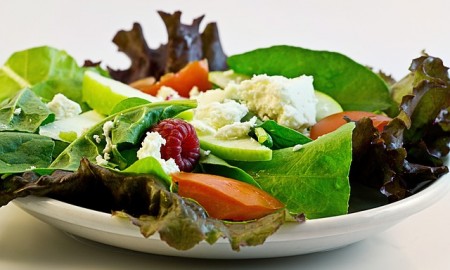

Intuitive eating is a lifestyle based on the principle that you should eat when you’re hungry, and stop eating when you’re full. Seems simple, right? As straightforward as the idea seems, however, it’s gaining traction on social media and among people who are tired of being told what to eat, when, and how much.
What is intuitive eating?
In truth, we’re all born intuitive eaters. As infants, we’re mainly uninterested in the nuances of macros and micros. We eat when we’re hungry. When we’re full, we stop (and generally fall asleep). Cognitively, we’re not even really aware of hunger as a concept or that there are choices to fulfill it until much later in the developmental process. We’re also blissfully unaware of other people’s opinions about our habits and weight.
Intuitive eating embraces this simple, straightforward approach of prioritizing your internal cues over external food rules. The goal isn’t to move the numbers on the scale, but to change your relationship with your body — and with food.
10 fundamentals to eat intuitively
The idea of throwing away mainstream concepts of dieting isn’t a new one. Thelma Wayler’s Green Mountain at Fox Run first scorned diet culture back in 1973. In 1995, Evelyn Tribole and Elyse Resch released a book called Intuitive Eating: A Revolutionary Anti-Diet Approach, now in its fourth edition.
In their book, Tribole and Resch outline ten principles of intuitive eating.
- Reject the diet mentality
No one knows how to feed and nourish your body better than you do. End of story. You don’t need expensive meal plans or fad diets to tell you when to eat, how much to eat, and what to eat. Your body will guide you — if you listen to it. - Honor your hunger
Babies understand intuitively that if you’re hungry, you need to eat. The more self-control you have to exert to stick to your diet plan, the more glucose you burn and the hungrier you’ll get. Pushing yourself to the point of excessive hunger won’t help you, but it will make you more prone to overeating. - Make peace with food
Food is not your enemy, not even when it’s dipped in chocolate. Having strong positive and negative associations with “off limits” food can cause feelings of deprivation. The associated stress releases cortisol, which actually makes it more difficult to control cravings and maintain a healthy weight. - Challenge the Food Police
No matter how guilty it may make you feel, eating a pint of ice cream in one sitting is not a punishable crime. And there have never been Nobel Prizes awarded for sticking to your macros. Take the good/bad conversation out of food and just eat it. - Discover the satisfaction factor
Many of us eat breakfast on the go, lunch at our desks, and dinner in front of our televisions. But tuning into your internal cues requires presence. A delicious meal is a pleasure unto itself. Connecting with the simple satisfaction of eating can help you make sustainable choices that feel good to you. - Feel your fullness
Do you know what feeling comfortably full feels like? Many of us have been taught to eat until we “clean our plates.” Next time you’re eating a meal, practice “mindful eating.” Take periodic pauses and ask yourself, “How do I feel? Am I still hungry? Am I ready to stop eating?” - Cope with your emotions with kindness
Our emotional eating habits can mask, reflect, or medicate deeper issues. Compounding the emotional baggage of food with the underlying feelings can be painful. As thoughts and emotions arise, handle them with kindness and self compassion. - Respect your body
Your body shows up and goes to work for you every day — mostly without complaint. Every single person has a zone of optimal health. You can be healthy at any size, so find what’s right for you. There’s no need to try to fit a certain BMI or a specific idea of what wellness looks like. - Movement — feel the difference
The same judgements that accompany our relationship with food are often attached to our perception of exercise. Instead of looking at fitness as something you have to do, look for ways of movement that you enjoy. What kind of exercise makes you feel good? - Honor your health with gentle nutrition
Believe it or not, there are healthy foods that you like. Choose foods that make you feel good and that you enjoy. And that may or may not include cake. If it does, that’s okay too. What you do most of the time is more important than what you do once in a while.

7 benefits of intuitive eating
So if you want to lose weight, improve your nutrition, or tone up, why wouldn’t you go with a traditional diet plan? For every fad diet, there are millions of devotees and testimonials — and some of them have some pretty sound science behind them. However, intuitive eating has some pretty compelling benefits. No matter where you are on your nutrition journey, here are 7 reasons you may want to give it a try.
- It removes the judgement around food. Once you begin eating for well-being and self-care, you can give up the “good” and “bad” labels we attach to certain foods.
- It makes it easier to connect to your internal cues. Over time, intuitive eating makes you more in tune with when you’re hungry, full, and what your cravings are trying to tell you.
- It improves your self-confidence. When you don’t have to worry about “messing up,” you can trust yourself more around food. You’ll make choices that are in alignment with your well-being and you’ll develop a sense of mastery.
- It reduces stress. When we’re trying to stick to a strict eating plan, worrying about what we’re eating (and when, and from where) can be really stressful. Staying present and making empowered choices — wherever you are — takes the stress out of trying (and maybe failing) to stick to a restrictive diet.
- It improves self-esteem and compassion. Tuning into your hunger and satiety cues helps you develop mindfulness and body awareness. But there’s a second benefit as well. Choosing your food according to your internal wisdom will help you develop a sense of mastery. With that newfound confidence, you’ll be more compassionate when you step outside of your normal eating habits.
- It helps you pinpoint food sensitivities. Nutritionist Lyn-Genet Recitas asserts that there are many “healthy” foods that may actually be triggering your weight gain, inflammation, or health issues. That’s because there really is no “set” list of healthy foods — it’s just what’s healthy for you. When you start to pay attention to what you crave and how you feel when you eat, you’ll begin to identify foods you may be sensitive to.
- It can make you more appreciative of your body. There’s another major benefit to this kind of self-awareness. When you stop stressing about doing things “right,” you can’t help but appreciate how amazing your body is — just exactly as it is right now.
Misconceptions and myths around intuitive eating
Intuitive eating means that you should eat whatever you want
Well, yes and no. Intuitive eating isn’t about eating whatever you want, it’s about eating whatever your body wants, which is subtly different. A common concern is that you’ll go off the deep end, eating pizza with a side of lasagna and whipped cream. In reality, though, “forbidden” foods are only desirable because we tell ourselves we can’t have them. Once you give yourself unconditional permission to eat what you want, you may find that you’re not all that into it.
Intuitive eating is meant for losing weight
Weight loss is not a goal of intuitive eating. The true aim is to nurture a healthy, balanced relationship with both food and your body. For some people, that might mean losing weight — and for others, it might mean gaining weight. The number on the scale matters less than how you feel, and whether or not you’re satisfied with what, how, and when you eat.
Intuitive eating is only for people with eating disorders
Just like infants, we are all capable of hearing and responding to our internal hunger cues. Throughout our lives, the cues become more difficult to hear and interpret, and this can be especially true for those with disordered eating. Although people who have especially troubled relationships with weight and food may have a different journey to take, eating intuitively can help them reclaim the ability to trust themselves. We all have our own complex relationships with food and body image. Learning self-trust and compassion is valuable for everyone, not only those with eating disorders.
Intuitive eating is anti-nutrition
Good science says you need to eat certain foods in order to stay healthy, but intuitive eating seems to throw that all out the window. What if you have medical needs that require you to stay on a specific eating plan?
Contrary to popular belief, intuitive eating doesn’t mean that you throw all food restrictions out the window. You’re ultimately responsible for what you choose to eat. If you were allergic to peanuts, you probably wouldn’t often find yourself craving a PB&J, whether a registered dietitian told you to eat it or not.
Intuitive eating means more than just eating whatever food pops into your mind. It’s a mindful approach to nutrition that means paying attention to what you eat, why you eat it, and how you feel after you do. You may naturally begin to regulate your eating behaviors and food choices once you become present to how they make you and your body feel. The goal isn’t to lose weight, but to drop the baggage around self-criticism. And being nicer to yourself is always pretty sweet.









You must be logged in to post a comment Login